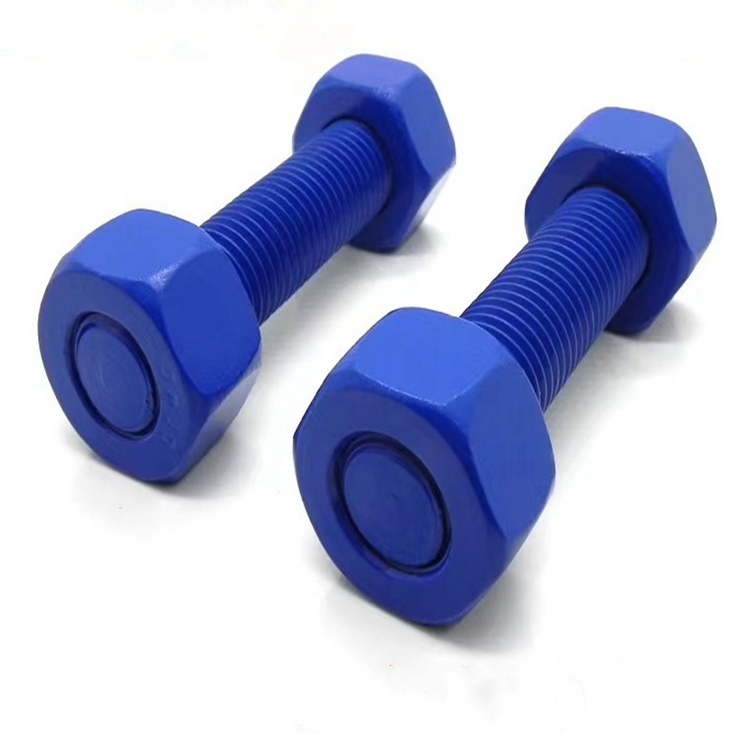stud bolt astm a193 gr b7 manufacturers
Nov . 16, 2024 22:48 Back to list
stud bolt astm a193 gr b7 manufacturers
Understanding Stud Bolts ASTM A193 Grade B7 Manufacturers
Stud bolts are crucial components in various engineering applications, particularly in industries requiring high-strength fasteners capable of withstanding extreme conditions. Among the specifications governing these fasteners is ASTM A193, a standard that dictates material properties and performance for stud bolts and other fasteners intended for high-temperature or high-pressure service. One specific grade under this standard is Grade B7, which is recognized for its excellent mechanical properties and versatility.
What is ASTM A193 Grade B7?
ASTM A193 Grade B7 is a specification for high-strength bolts, studs, and other fasteners typically used in pressure vessels, valves, flanges, and fittings. These materials are often made from alloy steel, specifically designed to perform in high-temperature environments, such as those found in petrochemical plants, power generation facilities, and other industrial applications. The primary characteristics of Grade B7 include a tensile strength of at least 125 ksi (pounds per square inch) and a yield strength of at least 105 ksi, combined with good ductility and weldability.
One of the defining features of ASTM A193 Grade B7 is its heat treatment process, specifically quenching and tempering, which enhances the strength and hardness of the material. This is crucial for applications requiring substantial resistance to stress, particularly in critical safety and operational scenarios.
Manufacturers of ASTM A193 Grade B7 Stud Bolts
The market for ASTM A193 Grade B7 stud bolts has several prominent manufacturers known for producing high-quality fasteners that meet stringent international standards. These manufacturers invest in advanced technology and adhere to rigorous quality assurance processes to ensure that their products meet or exceed the specifications laid out by ASTM.
stud bolt astm a193 gr b7 manufacturers

1. Reliability and Quality Control When selecting a manufacturer, it’s essential to evaluate their quality control measures. Leading companies conduct various tests, including tensile tests, hardness tests, and impact tests, to verify that their fasteners meet the required specifications. They often maintain certifications such as ISO 9001, AS9100, or other relevant accreditations, ensuring adherence to quality management systems.
2. Material Sourcing and Processing Quality manufacturers typically source their raw materials from reputable suppliers known for producing high-grade alloy steel. They also employ advanced processing techniques, including heat treatment and surface finishing, to enhance the performance characteristics of their products. Manufacturers may provide mill certificates, detailing the chemical composition and mechanical properties of their stud bolts, further guaranteeing the quality of their products.
3. Customization and Support Many manufacturers offer customization options to meet specific client requirements. This may include manufacturing stud bolts in various sizes, lengths, and coatings to provide additional protection against corrosion, a critical factor in many industrial applications. Additionally, excellent customer support, including pre-sale consultation and after-sale service, is a hallmark of reputable manufacturers, ensuring that clients receive the best solutions for their needs.
4. Industry Experience Experience in the industry is another crucial factor when selecting a manufacturer. Companies with a long track record are likely to have refined their processes and developed a deep understanding of different applications and environments. They may also be better positioned to offer insights into the best products for specific applications, based on their extensive experience.
Conclusion
In conclusion, ASTM A193 Grade B7 stud bolts are widely recognized for their high strength and performance in demanding environments. Manufacturers of these fasteners play a pivotal role in ensuring that the products meet the rigorous standards required for safety and functionality in various industrial applications. When selecting a manufacturer, it's essential to consider aspects such as quality control, material sourcing, customization options, and industry experience. This due diligence helps ensure that the stud bolts needed for critical applications will perform reliably under adverse conditions, thereby supporting the integrity and safety of engineering projects worldwide.
Latest news
-
Premium Phosphated Drywall Screws Supplier | Durable, Rust-Resistant
NewsAug.27,2025
-
Reliable Wire Bolts Suppliers | Quality Zinc Plated Fasteners
NewsAug.26,2025
-
Wire Bolts Suppliers: Durable & Reliable Fasteners for Every Project
NewsAug.25,2025
-
Premium Cabinet Bolts Supplier | Wholesale & Custom Solutions
NewsAug.24,2025
-
Reliable Axle Nuts Supplier | Quality & Precision Fasteners
NewsAug.23,2025
-
Durable Bolts for Lawn Mower Handle - Top Supplier & Manufacturer
NewsAug.22,2025
